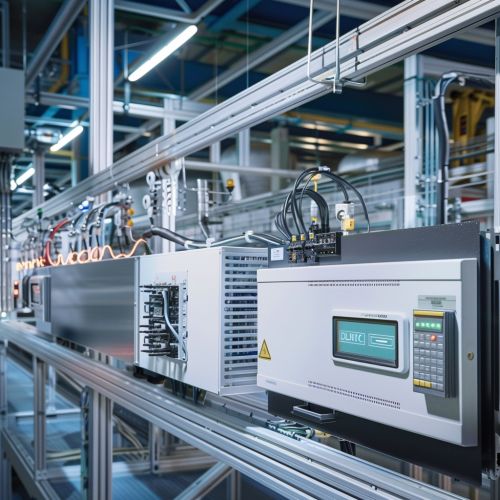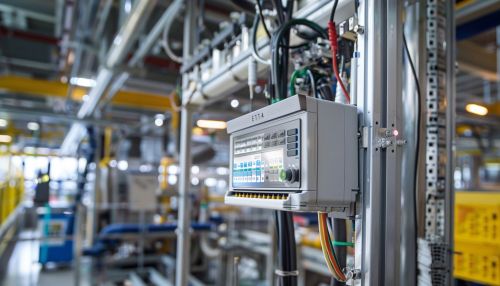Fieldbus
Overview
A fieldbus is a type of industrial computer network used for real-time distributed control. It is a system for serial data transfer in the field level of an automation environment. Fieldbus is designed to promote communication and interoperability among various automation devices.


History
The concept of fieldbus technology originated in the late 20th century as a solution to the limitations of the existing 4-20 mA standard for device communication. The first fieldbus systems were developed in the 1980s by several different companies, leading to a variety of incompatible protocols. In the 1990s, the International Electrotechnical Commission (IEC) began efforts to standardize fieldbus technology, resulting in the IEC 61158 standard.
Technology
Fieldbus technology uses digital, serial, two-way communications to connect industrial devices such as sensors, actuators, and controllers. Unlike traditional point-to-point wiring, fieldbus uses a single cable (often a twisted pair) to connect all devices on the network. This reduces the amount of wiring required and allows for more complex communication between devices.
Protocols
There are several different fieldbus protocols, each with its own strengths and weaknesses. Some of the most common include:
- PROFIBUS: A widely used fieldbus protocol developed by Siemens. It is known for its robustness and flexibility, and is used in a wide range of industries.
- DeviceNet: A protocol developed by Rockwell Automation that uses the Common Industrial Protocol (CIP). It is designed for use with low-level devices such as sensors and actuators.
- Foundation Fieldbus: A protocol developed by the Fieldbus Foundation that is based on the IEC 61158 standard. It is known for its support of complex device interactions and control strategies.
Applications
Fieldbus technology is used in a wide range of industries, including manufacturing, oil and gas, chemical processing, and power generation. It is used to connect devices in both process control and factory automation settings.
Advantages and Disadvantages
The main advantage of fieldbus technology is its ability to reduce the amount of wiring required in an industrial setting. This can lead to significant cost savings, both in terms of materials and labor. Fieldbus also allows for more complex communication between devices, which can improve efficiency and productivity.
However, fieldbus technology also has its disadvantages. The variety of different protocols can lead to compatibility issues, and the complexity of the technology can make it difficult to implement and maintain. Additionally, the digital nature of fieldbus communication can make it more susceptible to noise and interference than traditional analog signals.
Future Trends
As industrial automation continues to evolve, fieldbus technology is likely to play an increasingly important role. The trend towards Industry 4.0 and the Industrial Internet of Things (IIoT) is driving the need for more complex and robust communication systems. Fieldbus technology, with its ability to connect a wide range of devices and support complex interactions, is well positioned to meet this need.
See Also
- Industrial automation
- Process control
- Factory automation
- Industry 4.0
- Industrial Internet of Things (IIoT)
